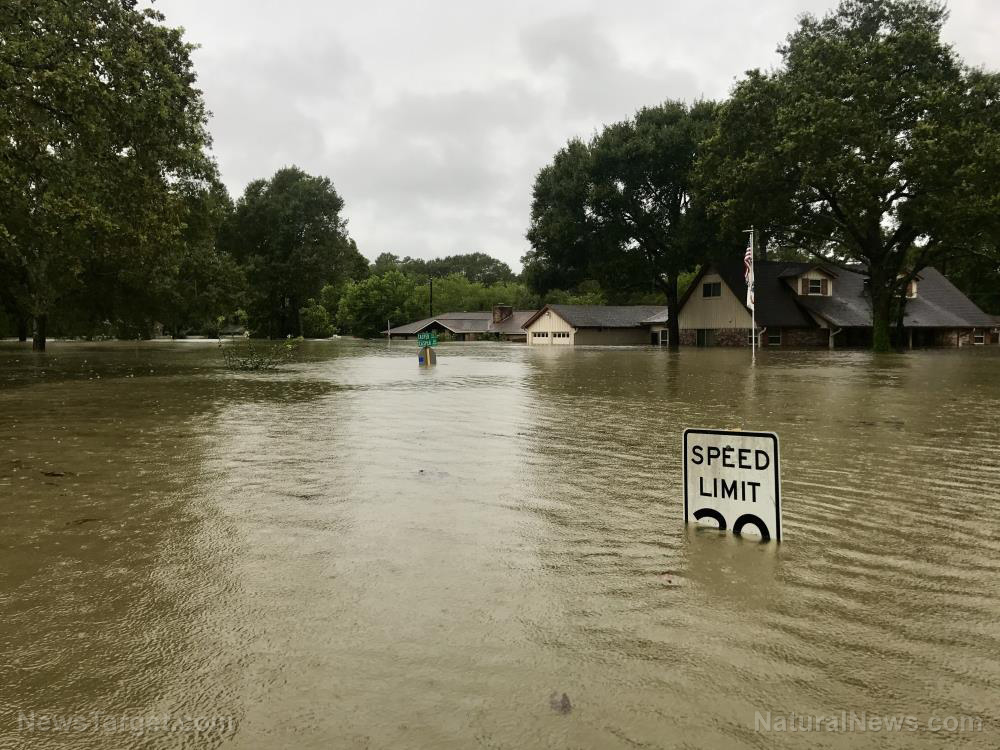 Parler
Parler Gab
Gab
- FEMA has denied a major disaster declaration for Western Maryland counties devastated by May flooding, ending their hope for federal aid.
- The denial comes despite documented damages exceeding $33 million, a figure nearly triple the state's threshold for federal assistance.
- The Trump administration approved aid for several other states on the same day it rejected Maryland's appeal.
- The decision has sparked criticism and questions about the equity of federal disaster relief allocation.
- The administration is simultaneously pursuing a significant expansion of financial support for Argentina, totaling up to $40 billion.
The Maryland floods and the fight for aid
Devastating floods swept through the Appalachian communities of Allegany and Garrett counties in May 2025. The disaster left hundreds of homes and businesses swamped, washed out critical roads and damaged sewage systems. In the small town of Westernport, with an annual budget of roughly $2 million, the damage was particularly acute. Local and state officials documented over $80 million in damages to public infrastructure. A FEMA assessment, while lower, still estimated the damage at more than $33 million—a figure nearly three times Maryland's threshold to qualify for a major disaster declaration and public assistance funding. Despite this, FEMA denied the state's initial request and, last week, rejected an appeal from Democratic Governor Wes Moore. In a statement, Governor Moore called the outcome "deeply frustrating" and said it "ignores the devastation wrought by historic floods in Appalachia and leaves Marylanders on their own." The denial exhausts all legal avenues for the state to seek this specific federal relief, leaving local governments to drain reserve funds and seek state-level bond funding for long-term repairs to roads, bridges and water systems.Aid flows elsewhere as Maryland's request is denied
The denial for Maryland stood in stark contrast to aid approved for other states on the very same day. President Donald Trump took to his Truth Social platform to announce the approval of disaster relief for Missouri, Nebraska, Alaska and North Dakota. In his post about Missouri, a state he noted he had won three times, Trump stated it was his "Honor to deliver for these incredible Patriots!" He posted similar celebratory messages for the other states, all of which have supported him in past elections. This pattern of approval for political allies and denial for a state with a Democratic governor has drawn scrutiny from government watchdog groups. It echoes a broader historical concern about the politicization of disaster relief, where federal resources can sometimes appear to be leveraged for political gain rather than being allocated solely on the basis of objective need and damage assessments.The Argentina financing package
As Western Maryland communities grappled with the aid denial, the Trump administration was finalizing plans to significantly expand its financial backing of Argentina. Treasury Secretary Scott Bessent announced the administration is working to provide an additional $20 billion in financing for the South American nation through private banks and sovereign funds. This would complement a separate $20 billion currency swap line pledged by the U.S. Treasury earlier in October. President Trump framed the aid as help for "our neighbors" during a White House meeting with Argentina's libertarian President Javier Milei. However, he explicitly linked the continuation of U.S. generosity to the success of Milei's party in Argentina's upcoming midterm elections, stating, "If he loses, we are not going to be generous with Argentina." The comments were criticized by Argentine opposition figures as a "blatant act of extortion" and highlighted the political considerations often embedded in international financial aid.National security and domestic preparedness
The situation in Maryland underscores a critical vulnerability in national resilience: the dependence of local communities on federal aid that may not always materialize. The denial of FEMA assistance forces a reckoning with the importance of local and individual preparedness. With the Maryland counties having already spent $7 million—completely emptying a county backup fund—the incident serves as a case study in the fragility of local disaster response budgets. This event reinforces the argument made by emergency management experts that communities must cultivate greater self-sufficiency. The ability to respond to and recover from disasters without immediate federal intervention is increasingly seen as a component of homeland security. When disasters strike, the first responders are always local, and the capacity of those local systems directly impacts the well-being of citizens.The bottom line for American communities
The dual developments of denied aid in Maryland and expanded financing for Argentina present a complex picture of the administration's priorities. For the residents of Allegany and Garrett counties, the federal government's decision is an immediate and practical setback, forcing them to rebuild with diminished resources. For observers of federal policy, it is a moment to examine the bias of principles guiding the distribution of disaster relief and foreign aid. The core question remains whether the allocation of billions in taxpayer funds is driven by unambiguous need and strategic national interest, or if political alignment and relationships are becoming decisive factors, potentially leaving some American communities behind in their most vulnerable moments. Sources for this article include: InformationLiberation.com APNews.com Fox5dc.comIsrael bans two Jewish-American women for assisting Palestinian farmers in West Bank
By Kevin Hughes // Share
Mamdani’s policy proposals stir debate on New York city’s economic future
By Finn Heartley // Share
Mysterious drones target NATO nuclear base in Belgium amid rising tensions over airspace violations
By Kevin Hughes // Share
Tragedy in Louisville: Cargo plane crash claims multiple lives, sparks urgent investigation
By Belle Carter // Share
Digital erasure: Big Tech bows to political pressure, wiping out Palestinian war crime documentation
By Belle Carter // Share
Governments continue to obscure COVID-19 vaccine data amid rising concerns over excess deaths
By patricklewis // Share
Tech giant Microsoft backs EXTINCTION with its support of carbon capture programs
By ramontomeydw // Share
Germany to resume arms exports to Israel despite repeated ceasefire violations
By isabelle // Share










